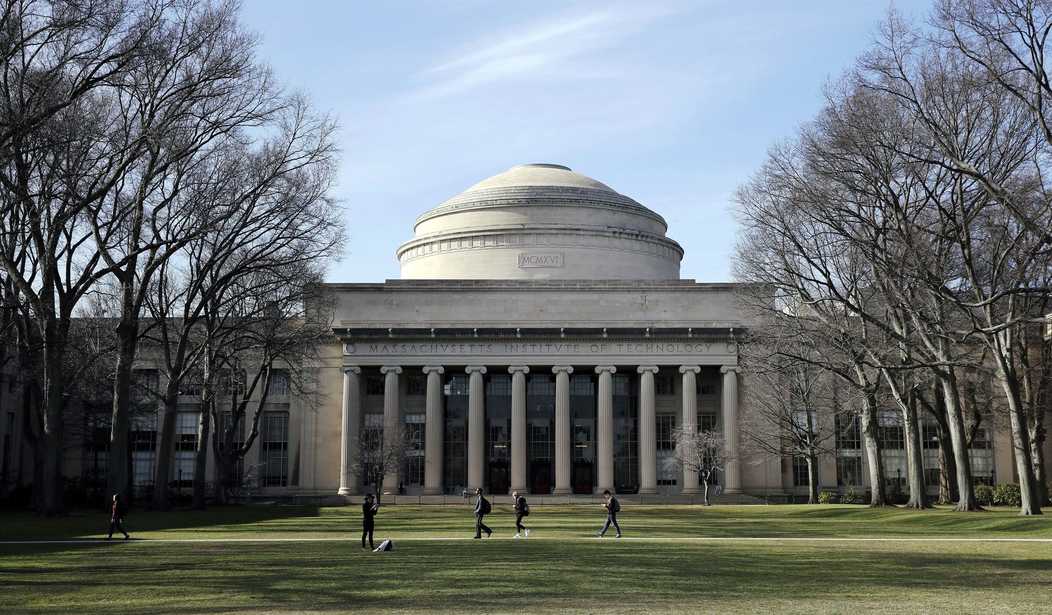The Massachusetts Institute of Technology just admitted its first class since the Supreme Court decision which put an end to affirmative action. As expected, the number of minority students dropped.
The university’s admissions department on Wednesday released its first-year class profile, showing a sharp drop in its Black student population. About 5% of MIT’s incoming class of 2028 is Black, a significant drop from its 13% average in recent years. Latino students make up 11% of the class of 2028, compared to a 15% average in recent years. Overall, 1,102 students make up the incoming class...
In recent years, Black, Latino, Native American and Pacific Islander students have accounted for 25% of MIT’s enrolling undergraduate classes, the university said. That number has declined to about 16% for the incoming class of 2028. The profile marks the first time a selective university has released its freshman class statistics since the ruling.
This should definitely put an end to any claims that affirmative action wasn't putting a thumb on the scales for minority students. What we're seeing at MIT this year is what happens when you take that thumb off the scale and allow students to be judged on their own merit.
Asked for comment, Edward Blum, the founder of Students for Fair Admissions which brought the lawsuit which ended Affirmative Action, had this to say about the outcome.
“Every student admitted to the class of 2028 at M.I.T. will know that they were accepted only based upon their outstanding academic and extracurricular achievements, not the color of their skin,” Mr. Blum said in an email.
He's exactly right of course. But more than that, no highly qualified students were passed over to make room for less qualified students. That's exactly how this is supposed to work. Students who worked hard all through high school, taking the toughest classes and getting the highest grades, SAT, ACT scores, etc. are the students who deserve a shot at MIT. Trying to racially balance the class to match the demographics of the population means that some of those highly qualified students would have received a rejection on the grounds of racial equity.
And it's clear from the data that the students who benefitted the most were Asian students.
The white and Asian American student populations have increased, while all other groups have declined — some even down to zero, the profile shows.
That's how NBC News reported it but according to the NY Times the percentage of white students actually declined.
White students made up 37 percent of the new class, compared to 38 percent last year.
On the other hand, the percentage of Asian American students in the class jumped to 47 percent from 40 percent.
I don't see the exact numbers admitted anywhere on MIT's site, but the 38% of white students mentioned by the Times is actually an average over 2024-2027. I guess it's still possible the white student population increased. They could have admitted more students this year, making 37% a higher number in absolute terms. But however you slice this, the acceptance of white students is either flat or down slightly after this ruling. If this is white supremacy, it's clearly not working.
Again, the actual beneficiaries are Asian students and that's good news. Those individual young people aren't an ethnicity, they are teens who did the hard work to get outstanding results. It's a good thing that those individals were not rejected so MIT could meet a social justice quota in which the number of Asian kids has to be held down. This should be about academic merit, not skin color.
MIT is the first to release this data but the results at other elite schools should be similar. If they are not, we may need to ask if those schools have found a way to sidestep the Supreme Court's decision.








Join the conversation as a VIP Member